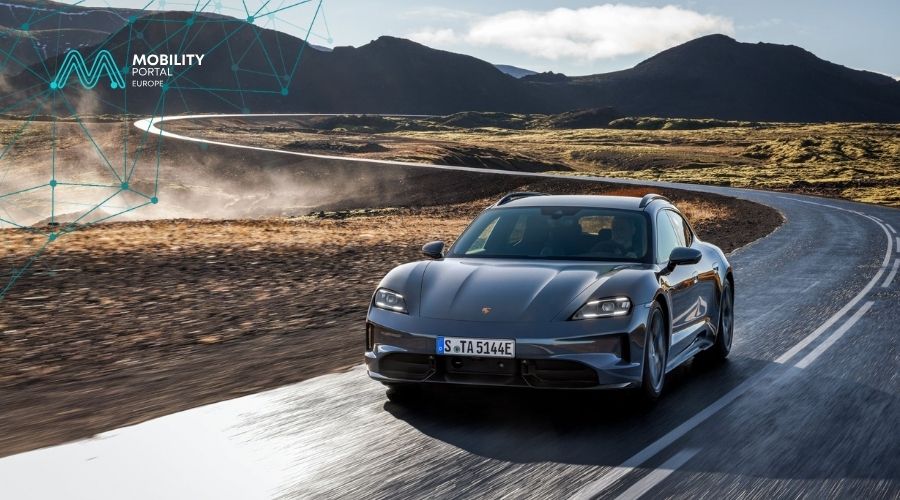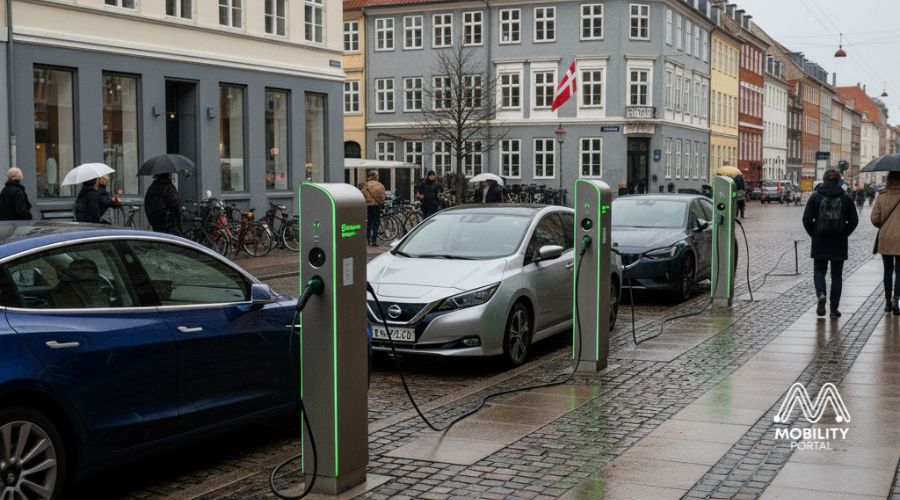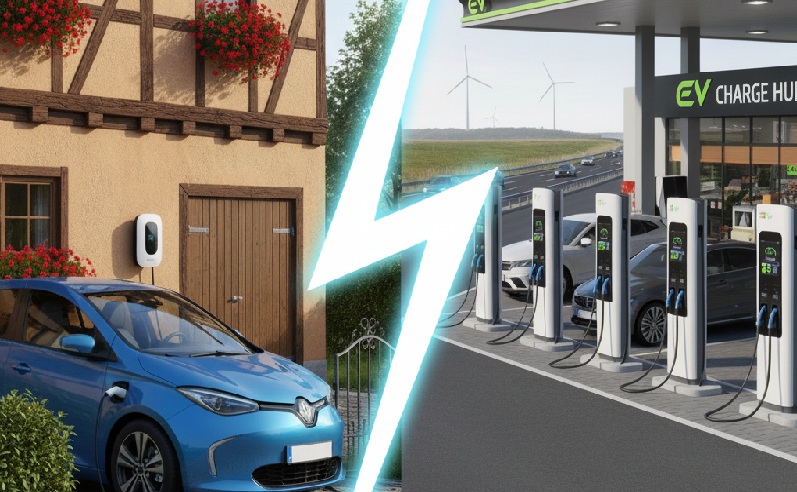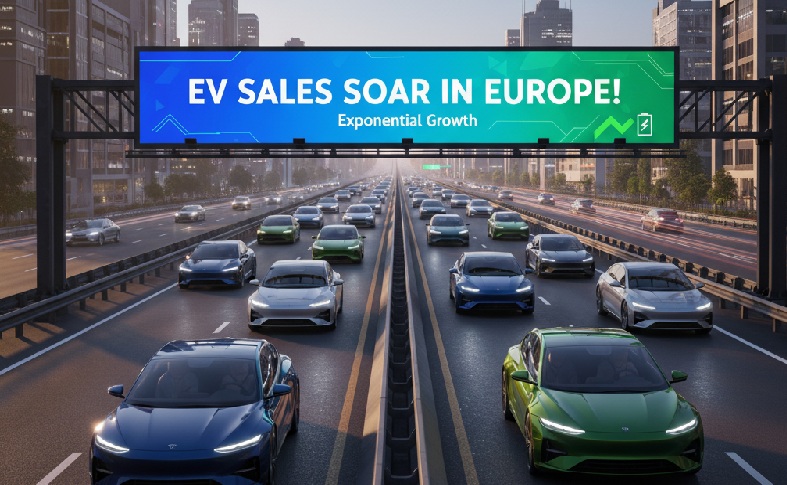The Warsaw–Berlin round trip wasn’t just another weekend getaway for Agata Rzędowska, CharIN Ambassador.
It was a technical demonstration of the Porsche Taycan, the German brand’s flagship electric vehicle (EV), and a chance to experience first-hand what lies beneath its sleek design.
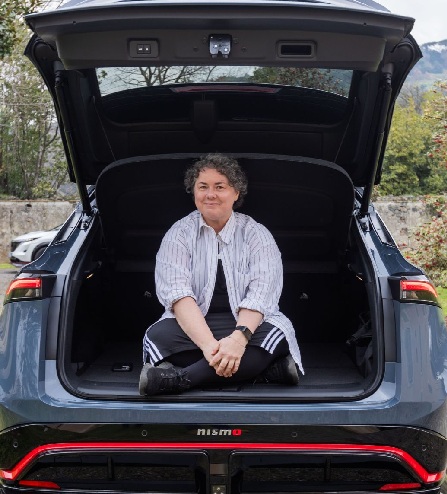
Despite the adverse weather conditions – with persistent rain – the car’s performance was flawless.
In fact, on a stretch near Berlin, Rzędowska managed to “unleash the beast” and test its Vmax, reaching 250 km/h with total stability.
“The car handled just as smoothly at that speed as it did at 100 km/h. That’s something you simply don’t get in an affordable EV. This really is a premium vehicle,” Rzędowska told Mobility Portal Europe.
This model can accelerate from 0 to 100 km/h in just 2.4 seconds.
“After covering 1,200 kilometres in this EV, I can confidently say it’s one of the best electric cars I’ve driven,” she added.
The trip took place during the Berlin E-Prix weekend, serving as a test not only for the vehicle itself, but also for the charging infrastructure, automated route planning and tech integration under demanding conditions.
The Taycan’s navigation system suggested two short charging stops – just enough time for a coffee and snack before getting back on the road.
At one stop, a peak charging speed of 320 kilowatts (kW) was reached – one of the fastest Rzędowska has experienced to date.
“We set off early, without a full battery. The car told us where to stop and which station to use. Everything worked perfectly,” she said.
“We didn’t really worry about energy consumption, because the charging was so quick and efficient,” she added.
The engineering behind the Taycan
Her travel companion was Maciej Dryjański, Branch Director and Head of Sales Poland and New Entries at AVL Software and Functions GmbH.

“It wasn’t my first time behind the wheel of this brand or model, but Dryjański, with his engineer’s eye, sees the car in a completely different way,” said the CharIN Ambassador.
Throughout the trip, Dryjański shared insights into the engineering choices behind the model, highlighting the importance of trade-offs between design, cost and performance.
“He told me the Taycan’s characteristics are unique – it’s one of the best examples in battery electric vehicles. From an engineering perspective, it’s top of the line,” Rzędowska noted.
AVL played a key role in developing the Taycan’s battery systems, offering expert support in benchmarking, analysis and development of the 800 V powertrain technology used in the model.
More specifically, the company conducted in-depth comparative testing of the powertrain and battery systems, evaluating performance, safety and reliability against competitors.
The tests were based on over 1,000 parameters, providing OEMs with a clear picture of capabilities and helping them to optimally balance performance features.
Beyond speed: a new benchmark for premium e-mobility
Beyond the 250 km/h top speed, the Taycan’s true message lies in its ability to deliver a complete premium EV experience – from ultra-fast charging to driving quality and powertrain efficiency.
“It was a relaxing trip because we knew the car would make it without issues, it was easy to drive, and the route planning was straightforward,” Rzędowska remarked.
What stood out most was the confidence in the system – thanks to managed range, accurate charging suggestions and impeccable performance, even in challenging conditions.
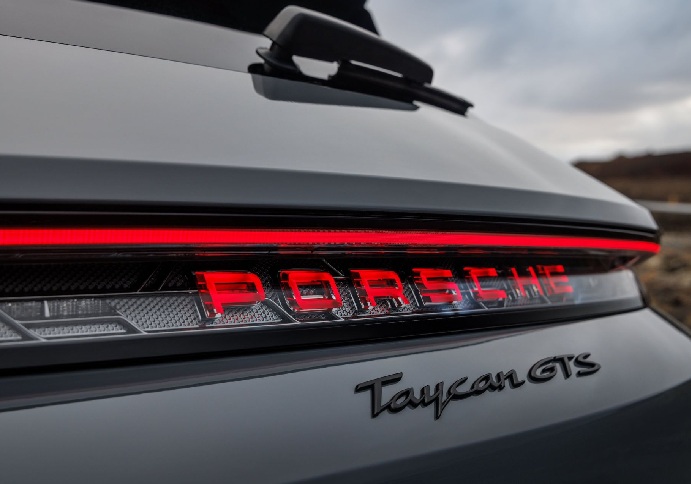
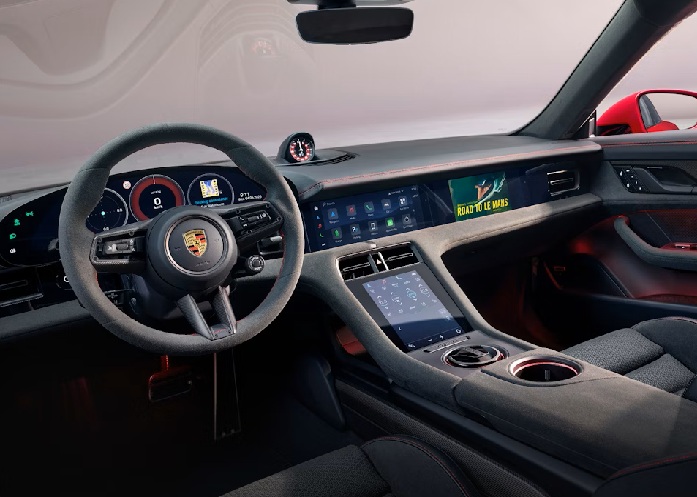
READ MORE
-
Affordable and reliable charging: Denmark’s two “unfinished tasks”
Denmark has already passed the threshold for mass adoption of electric vehicles. However, the eMobility sector warns that public charging remains “too expensive” compared to refuelling with petrol or diesel.
-
81% of European EV users charge at home—which countries rely most on public charging?
The survey identifies where EV drivers charge most often: home leads. However, in countries such as Germany, a large share relies on public infrastructure. Which countries follow on the list?
-
159,810 electric cars were registered across Europe: which countries led the way?
667,786 new vehicles were registered, with BEVs accounting for a 15.8% market share. When including data from EFTA countries and the UK, a total of 159,810 electric cars were registered across the region.





